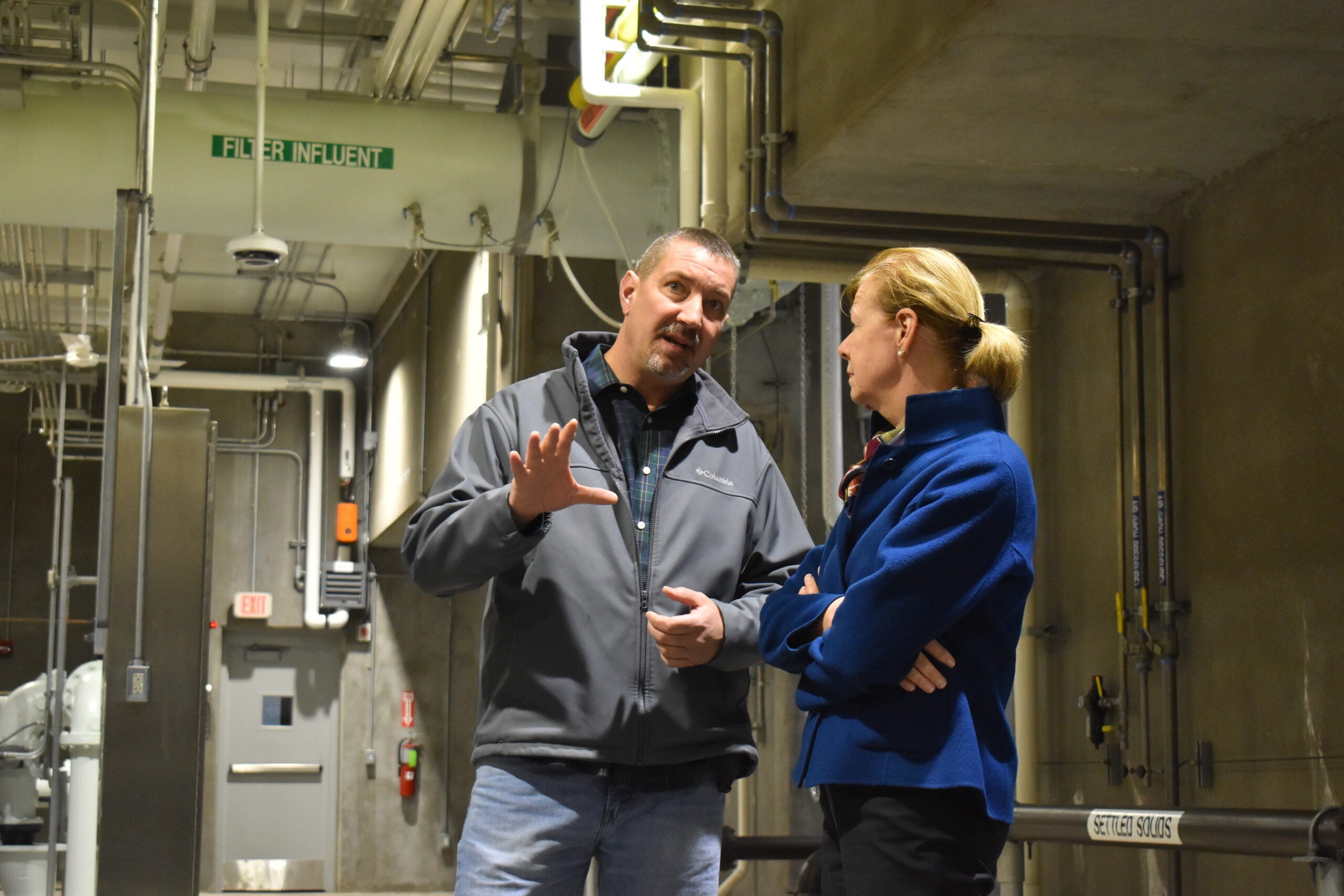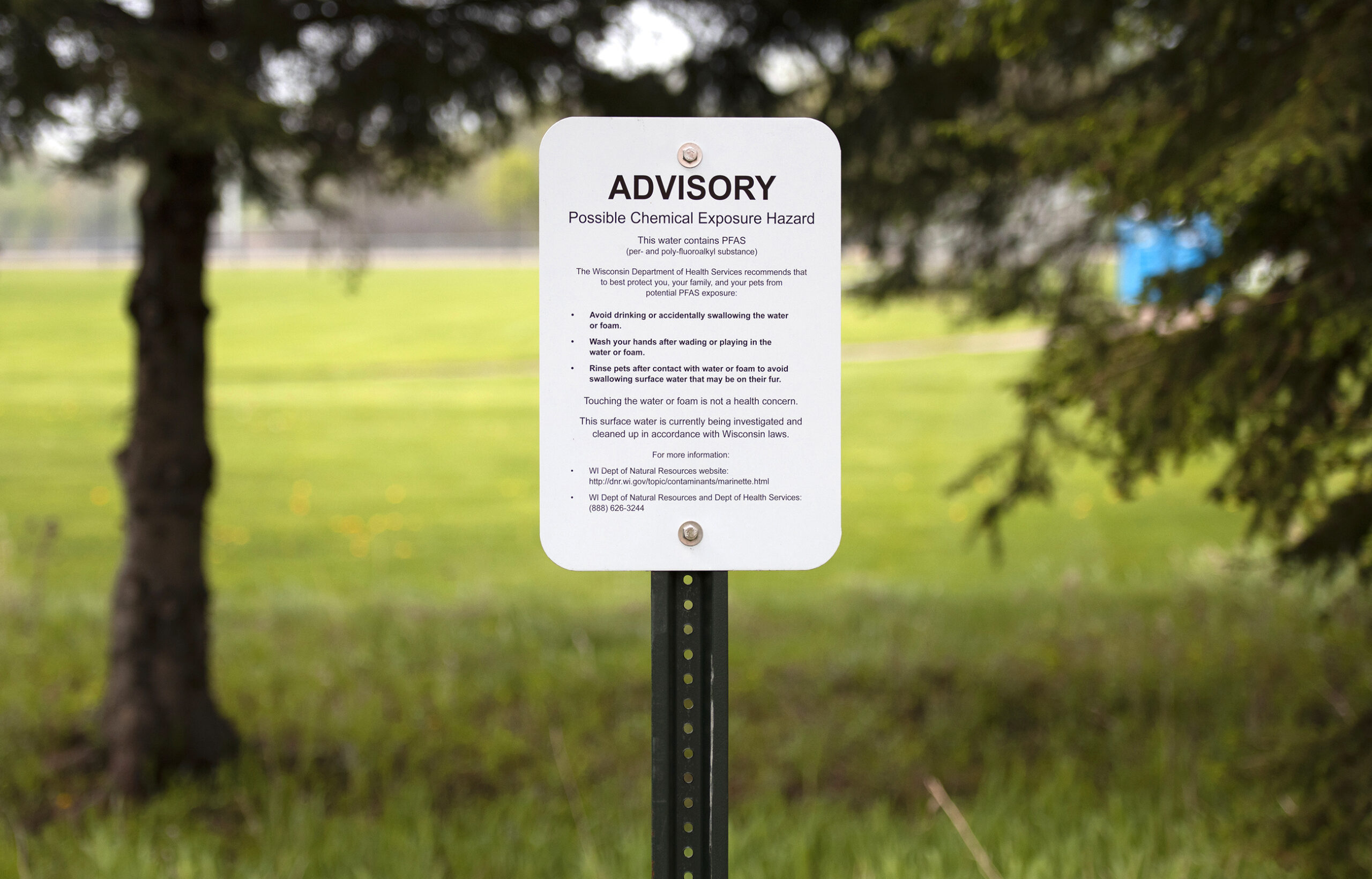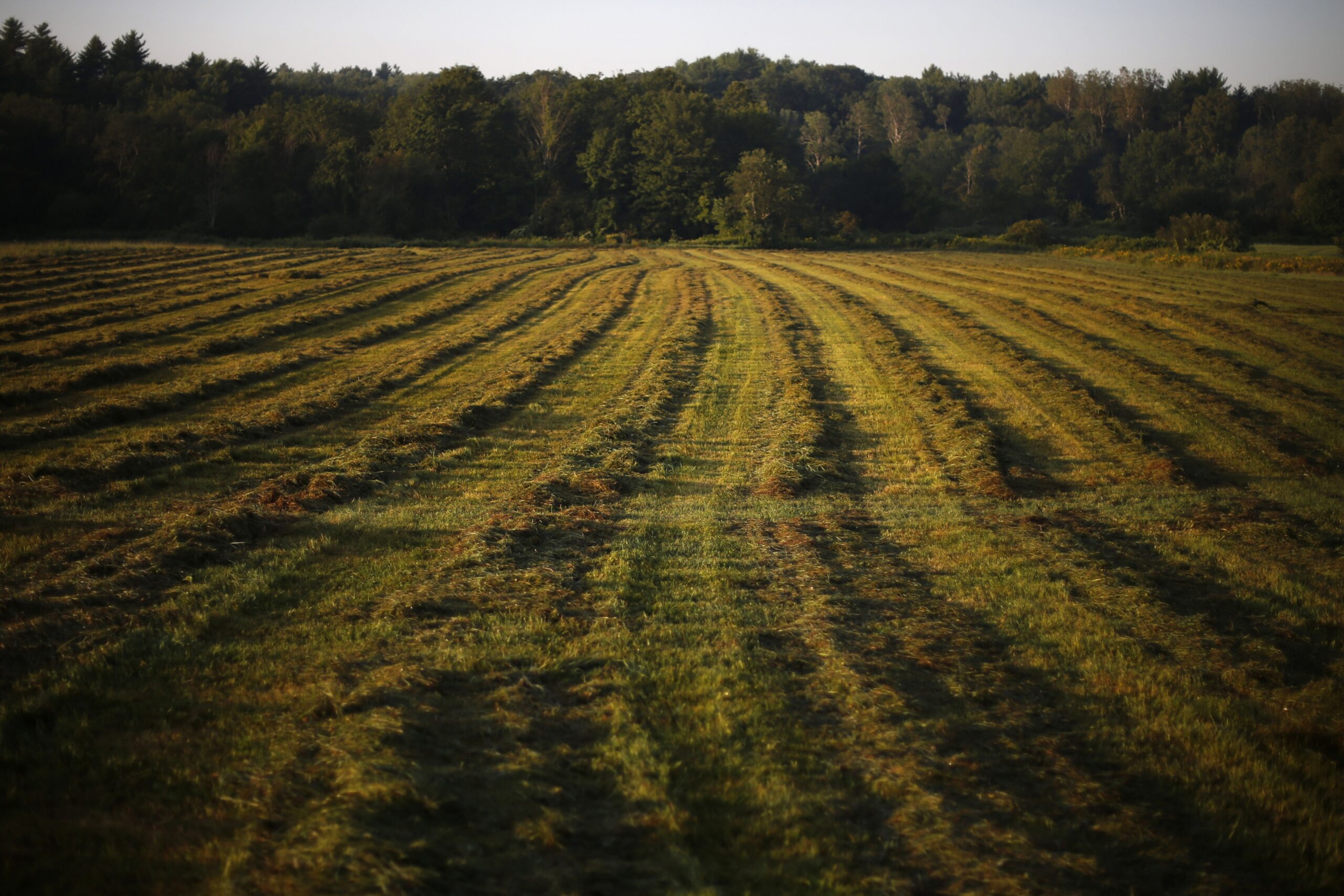Republican lawmakers are floating a bill that would provide grants to help communities address PFAS contamination, but the legislation would also limit the authority of state agencies overseeing cleanup of the chemicals or projects to address them.
State Senators Eric Wimberger and Rob Cowles, Republican lawmakers from Green Bay, are seeking co-sponsors for the bill by Friday. Rep. Jeff Mursau, R-Crivitz, and Rep. Rob Swearingen, R-Rhinelander, are sponsoring the bill in the state Assembly.
The bill would create a municipal PFAS grant program that would provide money for communities and sewerage districts to test their public water supplies and wastewater treatment plants for the chemicals. Systems that aren’t owned by communities but are still regulated as public water supplies could receive up to $1,800 in grants to test their drinking water.
News with a little more humanity
WPR’s “Wisconsin Today” newsletter keeps you connected to the state you love without feeling overwhelmed. No paywall. No agenda. No corporate filter.
The bill did not include details about funding for the grants, but Cowles told the Milwaukee Journal Sentinel funding would likely be discussed during a Thursday meeting of the Legislature’s budget-writing committee.
“Since this issue emerged, we’ve heard from homeowners, local government leaders, business owners, and people who enjoy our great outdoors about how PFAS has impacted them and what they’re concerned about moving ahead,” Cowles said in a statement. “We’ve drafted this bill to directly address those real concerns from Wisconsinites.”

PFAS, short for per- and polyfluoroalkyl substances, are a class of thousands of synthetic chemicals used in cookware, food wrappers and firefighting foam. The chemicals don’t break down easily in the environment. Research shows high exposure to PFAS has been linked to kidney and testicular cancers, fertility issues, thyroid disease and reduced response to vaccines over time.
The chemicals have contaminated both public and private wells in the towns of Peshtigo and Campbell in addition to the cities of Wausau, Eau Claire and Madison. The Wisconsin Department of Natural Resources has confirmed around 80 sites with PFAS contamination and more than 100 investigations are ongoing.
The GOP draft proposal would also provide funds for communities to test for PFAS at municipally owned or managed properties where the chemicals may be found. Communities could also access grants to dispose of biosolids, or sewage sludge, containing the chemicals. Those grants would require 20 percent in matching funds from communities.
“This legislation encompasses both short and long-term strategies for our state, local governments and landowners to deal with the financial and regulatory burdens associated with treating PFAS contamination,” Wimberger said in a statement.
Communities could also apply for funds to make upgrades or build new infrastructure where water or wastewater rates may increase by more than 20 percent in order to address PFAS. Owners of contaminated properties or fire departments that experience PFAS-related costs could also receive grants, which would also require 20 percent in matching funds.

Chris Groh, executive director of the Wisconsin Rural Water Association, said small community water systems are eager for any financial help.
“We’ll take any money that we can get because it’s very tight for small systems,” Groh said.
Even so, he said matching funds could still pose a barrier for some small communities because of expensive system upgrades to treat PFAS.
Peter Burress, government affairs manager for Wisconsin Conservation Voters, said the group is still analyzing the bill. Burress said the conservation organization wants to see legislation that would benefit communities most affected by PFAS contamination.
“The biggest thing at this point is that direct flexible funding to communities, so this is why we’ve been very supportive of the governor’s $106 million proposal, particularly on that community grant funding piece,” he said.
Democratic Gov. Tony Evers has proposed more than $100 million to address PFAS. The governor’s proposal and the Republican bill are similar in that they would direct grants to communities to address PFAS. However, the GOP-authored legislation seeks to place more limitations on the DNR’s authority to address the chemicals.
Under the draft bill, the DNR must provide communities that receive grants with three days advance notice of test results before publicly disclosing them. Also, the DNR couldn’t require grant recipients to address PFAS unless levels exceed any existing state or federal standards. A DNR spokesperson said the agency is unable to comment on pending legislation.
The Environmental Protection Agency has proposed drinking water limits of 4 parts per trillion for the two most widely studied PFAS chemicals, which is 17 times lower than the state’s current drinking water standard of 70 parts per trillion. Groundwater standards for private wells are currently lacking, although the DNR is crafting limits for the chemicals. Around a third of state residents get their drinking water from private wells.
Among other limitations under the bill, the DNR couldn’t require owners of abandoned or idle industrial sites to test for the chemicals unless the DNR had reason to believe there was substantial contamination that may be released. The agency also wouldn’t be able to delay or prevent development projects due to PFAS pollution unless they posed a threat to public health, threatened to make environmental conditions worse, or project developers caused the contamination.
The DNR would also be required to obtain written permission from landowners to conduct testing on private property and release the results to the public. If permission is granted, the agency would again have to provide advance notice to landowners. The DNR also couldn’t force property owners to address the chemicals unless PFAS levels went beyond state and federal standards.

Danielle Kaeding/WPR
The communities of Marinette and Peshtigo are dealing with contamination from the chemicals stemming from the use of PFAS-containing foam at fire training facility privately owned by Tyco Fire Products. Doug Oitzinger, a member of the Marinette City Council, said he’s both suspicious and optimistic of the bill.
“The bill clearly avoids any possible consequences for industry. There is no move towards regulation of PFAS. It’s 100 percent putting it on the taxpayers’ back to fund any of the testing and cleanup,” Oitzinger said. “So that’s disappointing that there isn’t at least some effort to hold the pollution lobby responsible.”
Wisconsin Manufacturers & Commerce, the state’s largest business lobby, has challenged the DNR’s authority to force businesses to test for and clean up the chemicals without first listing PFAS as hazardous substances through the state’s rulemaking process. A Waukesha County judge ruled in WMC’s favor, but the DNR can continue to address the chemicals while it appeals the decision.
The business group also sued the agency to prevent testing and release of wastewater sampling prior to the passage of state standards for the chemicals, saying it was unlawful and would harm the reputation of affected facilities. A Jefferson County judge later ruled the DNR could test wastewater for PFAS, but it couldn’t force facilities to address the chemicals until standards were in place. WMC declined to comment on the legislation.
While the legislation would protect private landowners, Oitzinger said he’s optimistic about the bill because the Legislature is now moving to address PFAS contamination within communities where previous attempts at legislation have failed. Even so, he said he feared the bill ties the DNR’s hands too much and doesn’t provide enough flexibility to respond to emerging chemicals of concern.
Oitzinger also said he understood the proposal’s three-year restriction on annexation of communities that receive safe drinking water from neighboring cities. Some towns have voiced concerns about the higher taxes and restrictions they would face under annexation just to gain clean water. Oitzinger said he felt communities should be more flexible to neighbors in need.
The legislation would also limit the authority of the Public Service Commission to investigate or penalize water and wastewater utilities that make PFAS-related upgrades before receiving approval under certain conditions. A PSC spokesperson said the commission is reviewing the bill and declined to comment further.
Other provisions in the bill:
- The bill requires surveying or resurveying fire departments about possession of PFAS-containing firefighting foam.
- The bill requires the DNR to provide grants up to $250,000 to property owners who were unaware of PFAS contamination and may require a 20 percent match.
- The bill would also provide grants to owners of contaminated private wells under the state’s well compensation grant program to cover the cost of water filtration and two replacement filters.
- The bill requires the DNR to conduct a pilot project where PFAS-contaminated water is diverted to a portable treatment system and then returned after treatment.
- The bill requires the DNR to respond and clean up sites where the responsible party is unable to pay or hasn’t been identified.
- The bill requires the DNR and University of Wisconsin Board of Regents to ensure the state lab of hygiene reduces the costs of PFAS testing by at least 10 percent within two years and issue a report on those efforts.
- The bill requires the DNR and Board of Regents to study and analyze the costs, feasibility and effectiveness of various treatment methods for PFAS, conduct a cost-benefit analysis for disposing of contaminated biosolids, analyze PFAS destruction methods, study the migration of PFAS into the bay of Green Bay, and create an interactive map on available PFAS testing data.
- The bill requires the DNR to provide a progress report to the Legislature once every six months for three years and detail the DNR’s expenditures under the bill.
- The bill outlines criteria for communities considered small or disadvantaged under the DNR’s environmental loan programs.
Wisconsin Public Radio, © Copyright 2025, Board of Regents of the University of Wisconsin System and Wisconsin Educational Communications Board.






